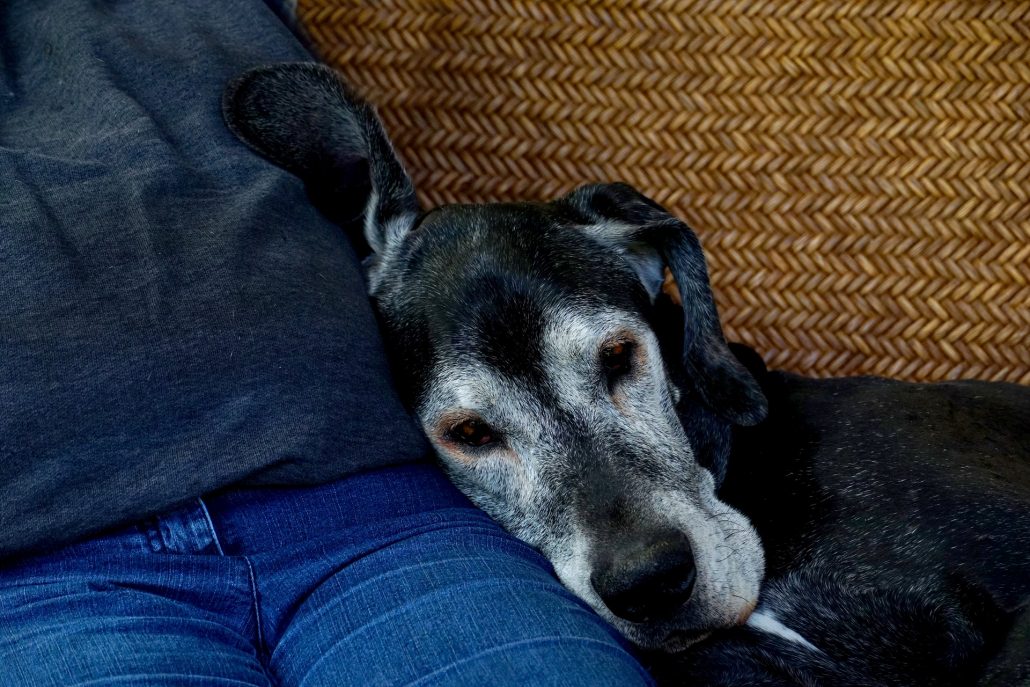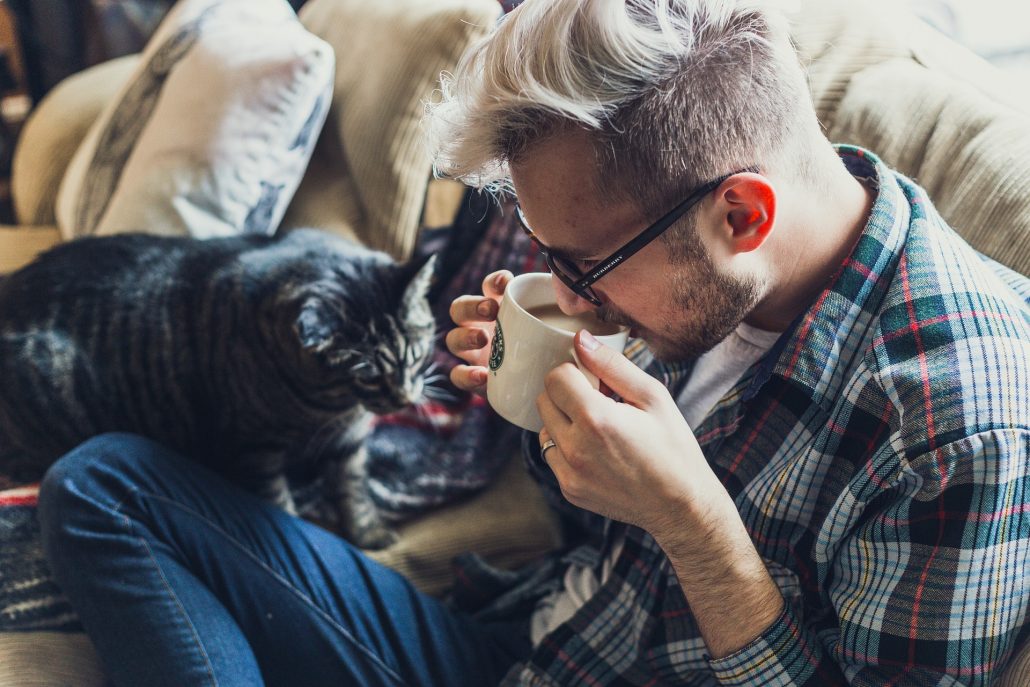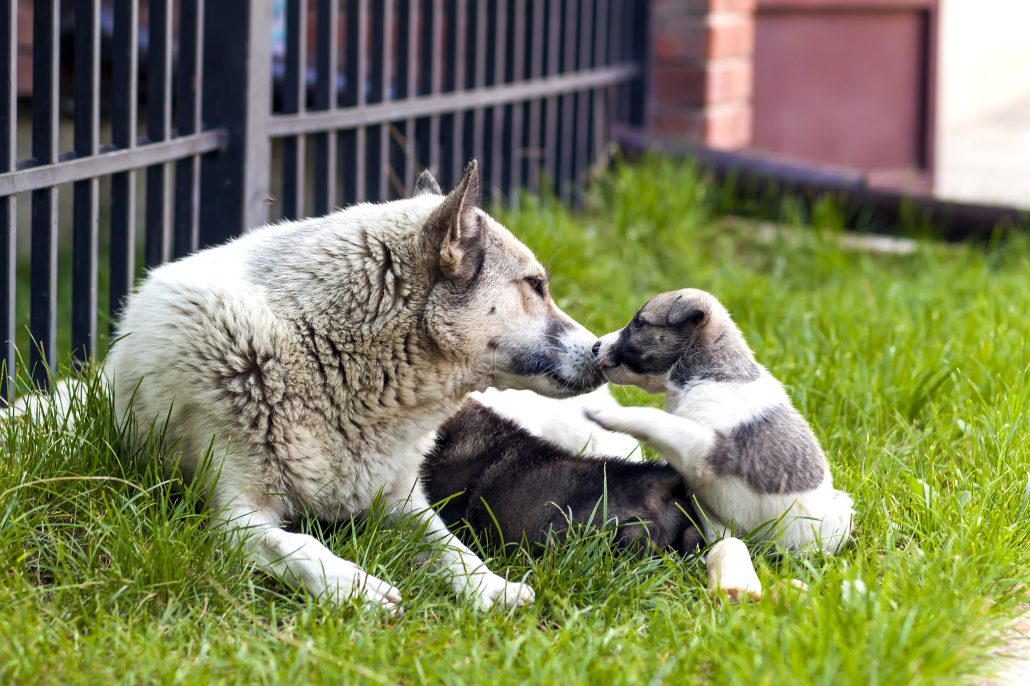
For many pet owners, watching our furry friends grow older is comforting, and a rewarding experience. It’s difficult to comprehend that same ball of energy running around the backyard all those years ago is now a relaxed and kind companion curled up at our feet.
When your old friend starts to wind down, and puts on a little weight or begins to stiffen up, they need your help and compassion. Unlike us, your pet can’t take ownership of its care. They rely on you!
In this post, we go over everything you need to know about caring for your older companions.
How does ageing affect older pets?
As your companion gets older, they can experience a range of physical changes that will shape their golden years. Some of these changes can seem sudden, like hearing loss, while other changes are more subtle. It is important to remember that many of these changes are not preventable, but can be treated and managed to ensure they are as comfortable as possible.
Nutrition
Senior pets often undergo changes in their nutritional needs. As their metabolism slows down, it’s crucial to adjust their diet to maintain optimal health. Specialised senior pet food and supplements can support joint health and cater to their changing nutritional needs.
Skin & Coat Changes
Aging can bring about changes in the skin and coat of your senior pets. Dryness, dullness, or changes in fur texture are most common. Proper grooming practices, including regular brushing and nourishing shampoos, can help maintain the health and appearance of their coat.
Arthritis
One of the more noticeable changes in our senior pets is the onset of arthritis. Joint pain and decreased mobility can significantly impact their quality of life if not properly treated. Implementing joint supplements, having comfortable bedding, and adapting exercise routines can manage the effects of arthritis and enhance their overall well-being.
Bathroom Behaviours
Changes in bathroom habits are also common as pets age. This may include increased frequency and difficulty in controlling their bladder or bowel movements, leading to accidents in the house. Consulting with a veterinarian can help identify underlying issues and create appropriate management strategies.
Hearing and Sight Changes
Many senior pets will experience a decline in their hearing and sight. While these changes can be disorienting, providing a consistent and secure environment becomes crucial. Recognising the signs early on allows for adjustments in communication and ensures their safety and comfort.
Cognitive Changes
Cognitive changes, such as disorientation or changes in behaviour, are another common change in aging pets. Engaging in mental stimulation activities, maintaining a routine, and providing a comforting environment can help manage these changes and reduce stress and anxiety.

Tips For Making Your Companion Comfortable
Ensuring the well-being of our senior pets involves a holistic approach that addresses various aspects of their health. This ensures a comfortable and fulfilling life for our aging companions.
Regular Checkups
Regular checkups are the foundation of senior pet care. And, as our pet’s can’t always tell us when they aren’t feeling well, these routine visits allow your vets to monitor your pet’s overall health, detect potential issues early, and tailor care to their specific needs. The risk of illness and disease increases with age, so regular checkups (at least twice a year) allow proactive management of any emerging health concerns.
Yearly Vaccination Booster
Maintaining up-to-date vaccinations is vital in protecting your senior pet against preventable diseases. Yearly vaccination boosters help bolster their immune system, providing protection against potential health risks and ensuring a longer, healthier life.
Parasite Control
Many senior pets are susceptible to parasites that can significantly compromise their health and overall quality of life. That is why it is crucial to implement a comprehensive parasite control plan, including regular deworming and preventive medications, to help protect them from internal and external parasites.
Heartworm Prevention
Heartworm disease can be particularly challenging for senior pets. Administering heartworm prevention medications as recommended by your veterinarian is crucial in safeguarding your pet’s heart health and preventing the potentially severe consequences of heartworm infestation.
Tick & Flea Control
Senior pets may have difficulties tolerating the discomfort caused by ticks and fleas. Utilising effective tick and flea control measures, such as topical treatments or collars, helps keep these pesky parasites at bay, ensuring your pet’s comfort and preventing potential diseases.
Exercise
Keeping your senior pet active is crucial. While their activity levels may decrease with age, regular, low-impact exercise helps maintain joint flexibility, muscle tone, and mental stimulation. Be sure to chat with your veterinarian to develop a customised exercise plan that suits your senior pet’s individual needs.
Dental Care
Poor dental health significantly impacts a senior pet’s overall well-being. However, regular dental care, including professional cleanings and at-home dental hygiene practices, helps prevent dental issues such as gum disease and tooth decay. This not only ensures a healthy mouth but also contributes to their overall health and comfort.
Maintaining a Healthy Diet
As pets age, their nutritional needs evolve. Providing a balanced and age-appropriate diet is crucial for maintaining their health and weight. Specialised senior pet food is rich in essential nutrients, and supports their changing metabolism, joint health, and overall nutritional requirements.

When to get in touch with your vet
Keeping a watchful eye on your senior pet’s well-being involves recognising early warning signs and knowing when it’s time to consult your local veterinarian. While some changes may seem like a natural part of aging, they can often indicate underlying age-related diseases. Here are crucial signs to be aware of:
- Watch for a sudden increase or decrease in appetite.
- Sudden weight loss or unexplained weight gain may signal health issues.
- Any loss of bladder or bowel control should be addressed as soon as possible.
- Look our for signs of stiffness, lameness, or difficulty moving. This can easily seen when taking part of physical activities they once enjoyed.
- Sudden changes in behaviour, confusion, or seeming disoriented may indicate underlying issues.
- Chronic coughing can be a sign of respiratory or heart issues.
- Regularly check for new lumps or bumps on your pet’s body.
- Oral health is crucial; any signs of dental problems should be addressed.
- Occasional stomach upset is normal, but persistent issues need veterinary attention.
- Significant changes in sleep duration or patterns may suggest pain or discomfort.
- Ear issues can be indicators of infections or allergies.
- Changes in water intake and bathroom habits should be monitored closely and addressed if it continues.

When to get in touch with your vet
Caring for your senior pets is a journey filled with love, compassion, and dedicated attention. As we see the subtle and not-so-subtle changes in our furry companions, it becomes our responsibility to ensure their golden years are filled with comfort and joy. Remember, the key lies in being proactive, observant, and responsive to their evolving needs!
For personalised guidance on caring for your senior pet, our dedicated veterinary team is here to help! Schedule a check-up today to discuss your pet’s specific needs and create a tailored care plan that ensures their health, happiness, and comfort!

